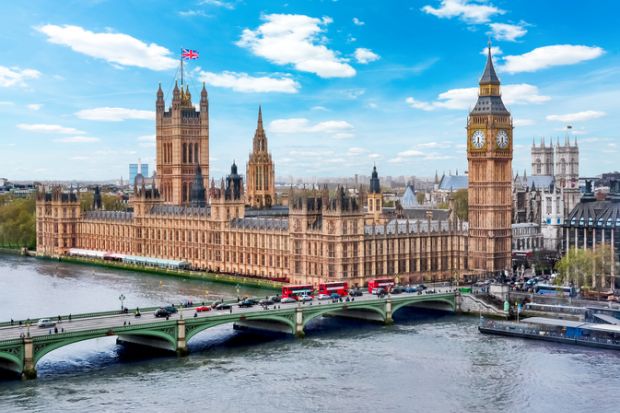The UK government should provide clearer guidance about when university students are entitled to seek a refund or repeat part of their course in light of the disruption caused by the coronavirus pandemic, and it should consider providing additional funding to institutions to enable them to make such reimbursements, according to a committee of MPs.
The House of Commons Petition Committee says that a “significant number of students” had told it that “they are not receiving the standard of education that they had expected, feel they are entitled to, or which offers true value for money in light of the amount they are paying in tuition fees”, following the shift to online learning since March.
“Many students have experienced difficulties accessing the online content that has been made available, particularly those from disadvantaged backgrounds,” the committee says in a report published on 13 July.
However, the MPs acknowledge that staff “have made tremendous efforts to continue to deliver university courses in uniquely challenging circumstances, and some students have continued to receive an excellent education”.
“We do not therefore believe that there should be a universal refund or reimbursement of tuition fees to all university students,” the report says.
However, the MPs say, it is “not acceptable”, given the scale of the disruption caused by Covid-19, to expect students to rely on university complaints procedures and the sector ombudsman, the Office of the Independent Adjudicator for Higher Education – or the courts – to provide redress.
The government, says the committee, should “produce guidance on the circumstances in which university students are likely to be entitled to seek a refund or to repeat part of their course, and to establish a new system which enables all students to easily seek a full or partial refund of their tuition fees, or to repeat part of their course, based on an independent and objective assessment of the quality of education they have received over the academic year”.
Given the likely impact of coronavirus on the higher education sector, the government “should consider providing additional funding to universities to enable them to pay any refunds university students are entitled to as a result of the Covid-19 outbreak”, the report says.
“The government could also consider alternative means for reimbursing students, where an independent process has found that they are entitled to a refund, such as reducing student loans of students who are entitled to a refund,” the MPs add.
The committee launched the inquiry after petitions calling for tuition fees to be refunded in light of the disruption caused by the virus and industrial action attracted more than 600,000 signatures.
A survey of about 25,000 petition signatories conducted by the committee found that 78 per cent of respondents claimed to be either dissatisfied or very dissatisfied with the quality of education that they had received.
The committee chair, Labour’s Catherine McKinnell, said the government “has a role in ensuring any student whose university experience has fallen short is compensated”.
“The coronavirus pandemic and its effect on UK universities represents the greatest challenge they have faced for generations,” she said.
“If the government fails to offer a comprehensive and accessible support package for both universities and students, then we face letting down an entire generation, and critically damaging a sector that will play a crucial role in our country’s post-Covid economic recovery.”
Larissa Kennedy, president of the National Union of Students, said that it was “critical” that ministers acted on the suggestions, and that they “must also go further” and provide “universal compensation”.
Register to continue
Why register?
- Registration is free and only takes a moment
- Once registered, you can read 3 articles a month
- Sign up for our newsletter
Subscribe
Or subscribe for unlimited access to:
- Unlimited access to news, views, insights & reviews
- Digital editions
- Digital access to THE’s university and college rankings analysis
Already registered or a current subscriber? Login




